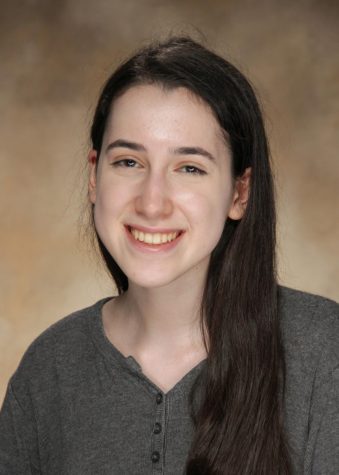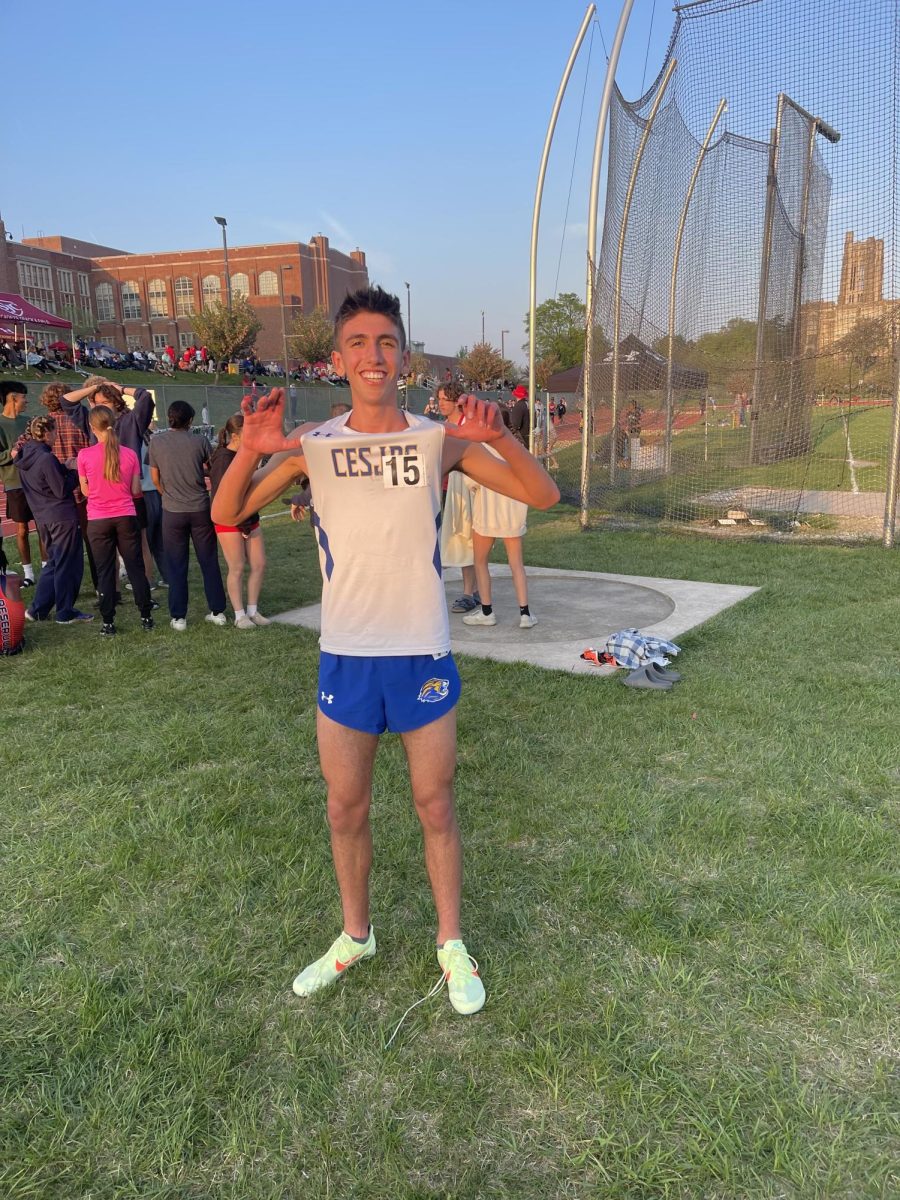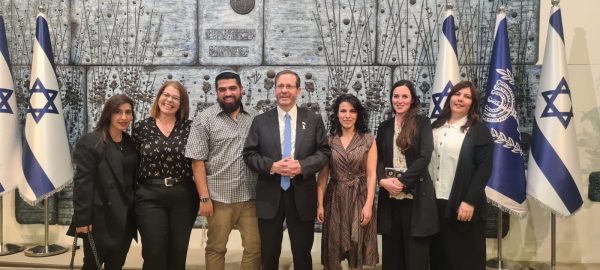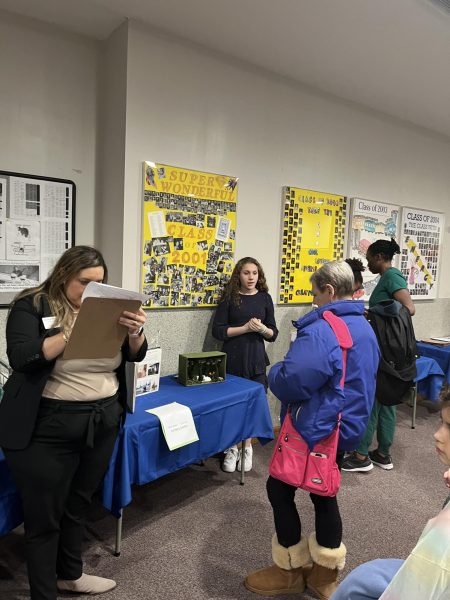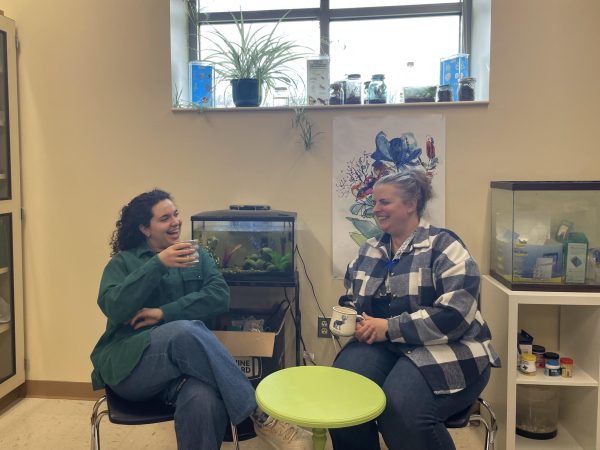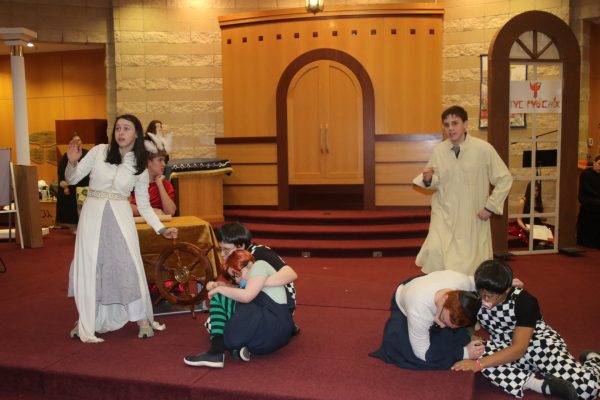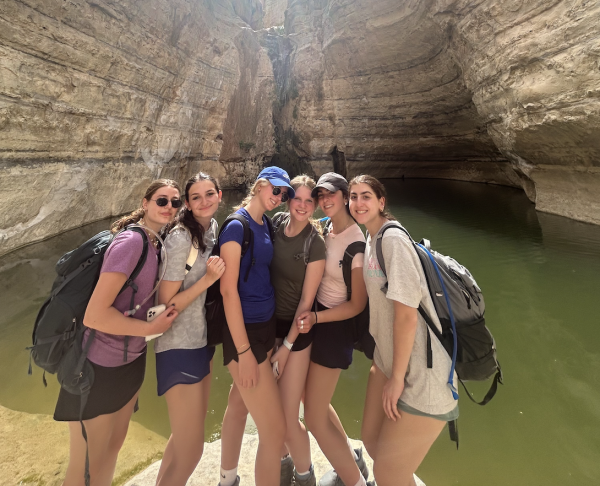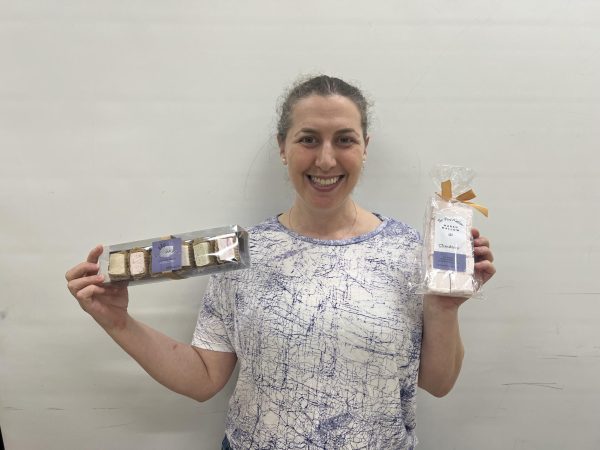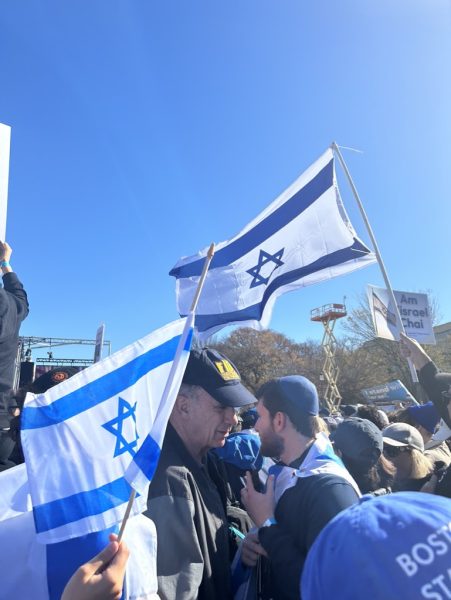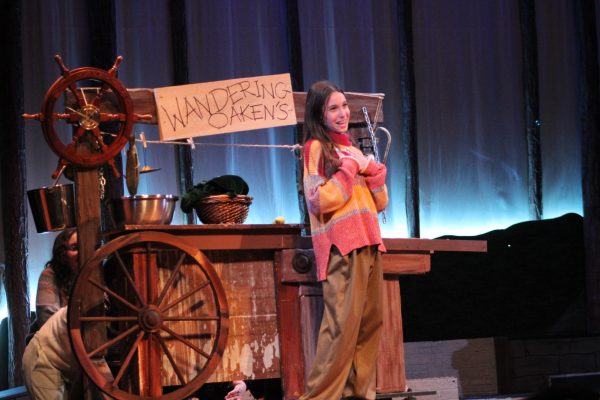Bridging boundaries: Arab-Israeli delegation interacts with juniors
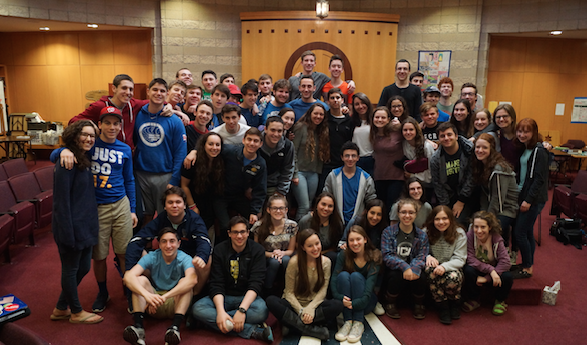
Junior hebrew and Jewish history classes discuss the Arab-Israeli conflict with the Israeli delegation on Monday, April 4.
April 12, 2016
CESJDS juniors had the opportunity to learn about Israel outside of the classroom when the Spark of Change Foundation delegation joined them on their Shabbaton this year.
The delegation consisted of four Northern Israeli teenagers: two Arabs and two Jews, who arrived on Thursday, March 31 and left Monday, April 4. The two Arab-Israelis, one boy and one girl, were from Deir al-Assad and the two Jewish-Israelis, also one boy and one girl, were from Misgav. A teacher from each school, along with the program coordinator, also visited.
The Sparks of Change Foundation, the organization that sponsored the delegation’s trip, is a non-profit organization that funds and supports programs that help inspire change throughout the world.
Last year, a delegation of only Arab-Israelis visited JDS, but “the foundation decided that in order to do this properly, there really needed to be Arabs and Jews coming together,” Director of Jewish Life Stephanie Hoffman said.
This year, the Israeli students attended the junior Shabbaton and afterwards held a program for the juniors Monday at school. On Thursday, Saturday and Sunday night, the students and their chaperones were hosted by a JDS family.
Junior Zev Stravitz, who hosted the two Israeli boys, said that the two quickly became friends with him and his family. Since it was the Israelis’ first time in America, he helped introduce them to the country, and witnessed them taking pictures of virtually everything, including squirrels.
Junior Samantha Haas had dinner at junior Maya Arber’s house on Thursday night, where she met and got to know the two Israeli girls and program coordinator who Arber hosted. At the Shabbaton, Haas was able to help introduce the girls to her peers.
“I was really taken by how accepting they were of Americans, and especially the Arab girl, how accepting she was of me being a Jew,” Haas said. “She immediately kind of clung to me and became my friend, and it was really eye-opening to see that she was willing to become friends with a Jew.”
At the Shabbaton, the Israeli students were invited to participate in all of the activities. The Shabbaton began Friday afternoon with icebreakers, when the Israeli students were each paired with a JDS student. Later, in a round-robin type icebreaker activity, the Israeli students moved around four different circles of JDS students to answer discussion questions.
“Every one of our students got to hear a little bit about [the Israelis], and they got to meet every one of our students because of that rotation,” Hoffman said.
According to Stravitz, at the Shabbaton, everyone in the grade wanted to meet the Israelis in the delegation. After the icebreakers, when they met the eleventh grade, the Israelis quickly began becoming friends with everyone in the Shabbaton.
When the juniors returned to school on Monday, the Israeli delegation rejoined them. All juniors had the opportunity to be in at least one session lead by the delegation students which covered one of three topics: education, contemporary Israeli society or American society, where the Israeli students asked questions of JDS students.
“Hearing directly from people their own age as opposed to a teacher who walks in and shares with them about what’s going on in society, and using some of that information and asking questions that they were really curious about, about how does it impact them, I think is impactful on an individual,” Hoffman said.
Although Haas said that the panel she attended asked more personal questions than questions about the current conflicts in Israel, it still provided for a more meaningful learning experience than a regular conversation.
“I think one thing in particular that really stood out to me was just hearing out [the Israelis’] differences, but also hearing how similar they were,” Haas said. “It wasn’t like one specific thing that anybody said, but it was just hearing how although there is a huge conflict going on between their two ethnicities, there are still so many similarities between them and so much that they have in common, and the ability for them to actually be friends is really cool.”
According to Hoffman, the school is working on a program for next year involving JDS, a Jewish school in Israel and an Arab school in Israel. While the exact details of the program are yet to be determined, she hopes to continue engaging students in opportunities to interact with both populations in Israel and provide both populations with the ability to engage with each other.
“[This type of program] provides our students with insight into what life is really like and the opportunities and challenges and everything that goes along with that,” Hoffman said.
With regard to this year’s visit, Hoffman said that having the Shabbaton before Monday’s sessions helped strengthen the experience, as students were able to get acquainted before they discussed “hard questions.” Stravitz agreed that this year’s program was worthwhile and interesting.
“I think they definitely benefitted as much from the program as we benefitted from them,” Stravitz said. “I think that we learned a lot from it and I think they learned a lot from it.”
Haas said that the one fascinating thing about the panel she attended was that at the end, when she asked the Israeli students whether they planned on living in America at some point in their lives, they immediately responded that they planned on doing so.
Haas said that to her, one reason why the visit was successful and beneficial to everyone involved was that both JDS and Israeli students were willing to be friends and to get to know each other.
“I think that that’s the first step into a peace process and it’s really great that they were really taking advantage of everything that we offered to them,” Haas said.


